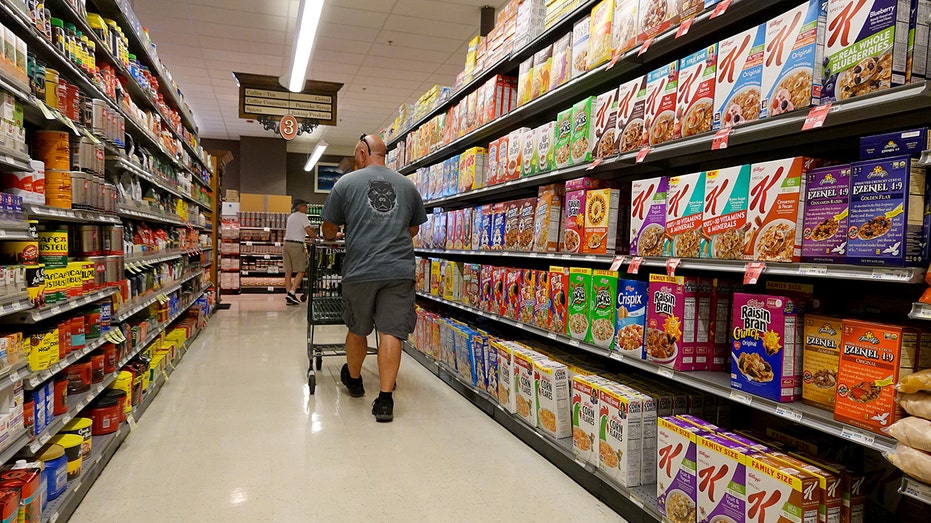Carson Group chief market strategist Ryan Detrick discusses whether the stock market will see good returns in an election year on ‘Making Money.’
A closely watched inflation report due Tuesday is expected to show that price pressures within the economy continued to ease last month.
Economists expect the consumer price index, which measures a range of goods that includes gasoline, health care, groceries and rent, to show that monthly prices rose 3% in November, just below the 3.2% increase recorded the previous month.
On a monthly basis, inflation is seen coming in flat – the same as in October – thanks to a steep drop in gasoline prices.
“Americans continue to feel the shock of the post-pandemic inflation surge which weighs on both sentiment and purchasing power,” said Mark Hamrick, senior economic analyst at Bankrate. “But the forthcoming consumer price index data should align with recent improving price trends, fueled in part by last month’s big drop in gasoline prices.”
RISING CHILD CARE PRICES STARTING TO BITE US FAMILIES
Other parts of the report are expected to point to a slower retreat in inflation. Core prices, which exclude the more volatile measurements of food and energy, are expected to climb 0.3%, or 4.1% annually. Those figures are little changed from October, suggesting that underlying price pressures remain strong.
The Federal Reserve’s target rate is 2%.
401(K) HARDSHIP WITHDRAWALS ARE SURGING AS HIGH INFLATION SQUEEZES AMERICANS
The central bank is closely watching the report for evidence that inflation is finally subsiding as policymakers try to cool the economy with a series of aggressive interest rate hikes. Officials have approved 11 rate increases since March 2022, lifting the benchmark federal funds rate from nearly zero to the highest level since 2001.
Although policymakers have kept the option of another rate hike on the table, they are widely expected to hold rates steady for the third straight month at their final meeting of the year on Wednesday.
A shopper makes his way through a grocery store in Miami on July 12, 2023. (Joe Raedle/Getty Images / Getty Images)
In addition to inflation, central bank officials are taking into consideration job growth and consumer inflation expectations.
GET FOX BUSINESS ON THE GO BY CLICKING HERE
Inflation has created severe financial pressures for most U.S. households, which are forced to pay more for everyday necessities like food and rent. The burden is disproportionately borne by low-income Americans, whose already-stretched paychecks are heavily impacted by price fluctuations.
Although inflation has fallen from a peak of 9.1%, when compared with January 2021 – shortly before prices began to spike – the consumer price index is up a stunning 17.62%.
“To level set, however, we’re reminded that over the past four years, the main gauge of inflation at the retail level is up about 20%,” Hamrick said. “As a result, most Americans and the Federal Reserve are not yet ready to proclaim ‘mission accomplished’ in the battle against inflation.”
Credit: Source link




